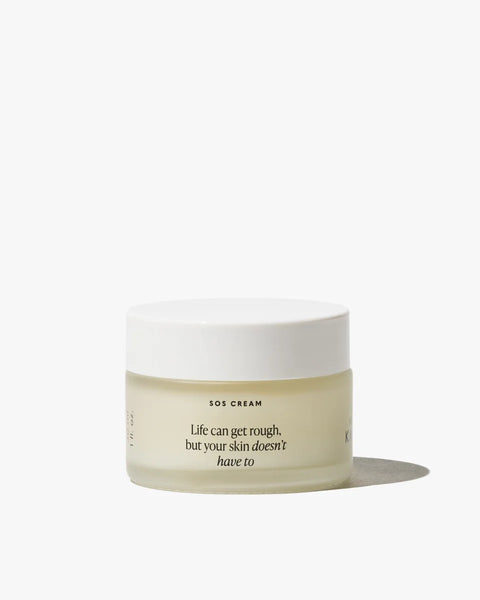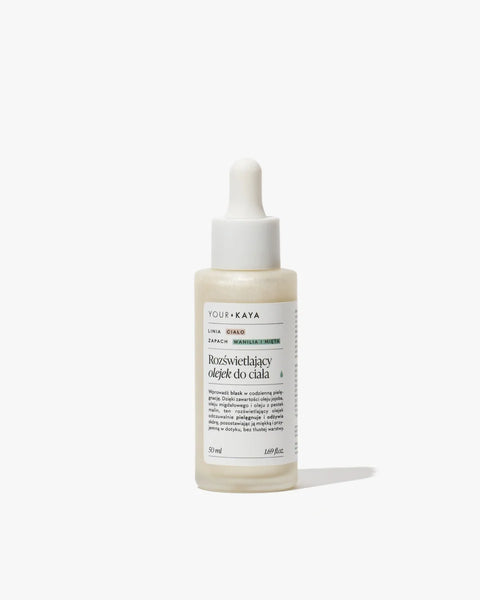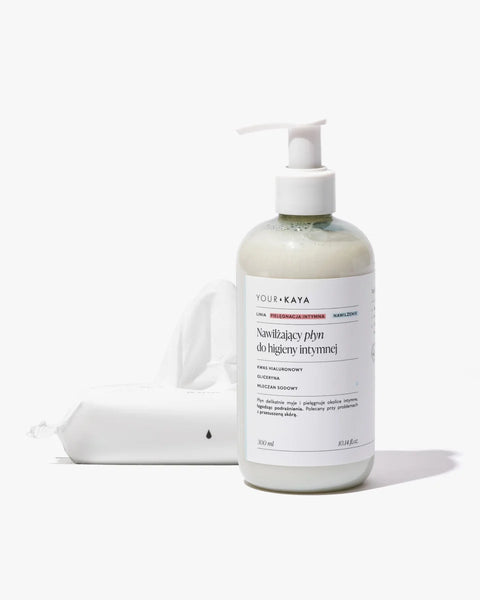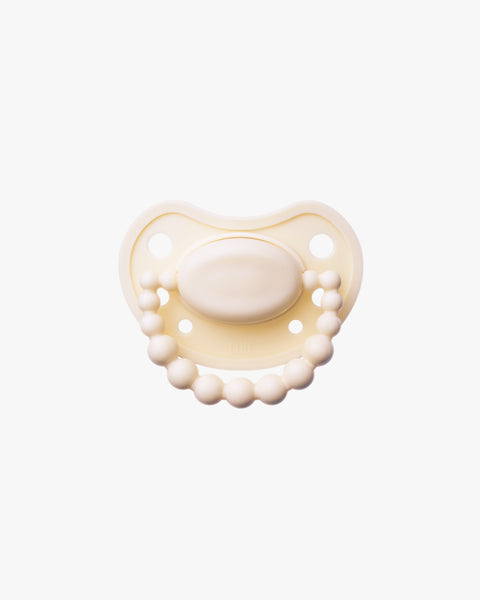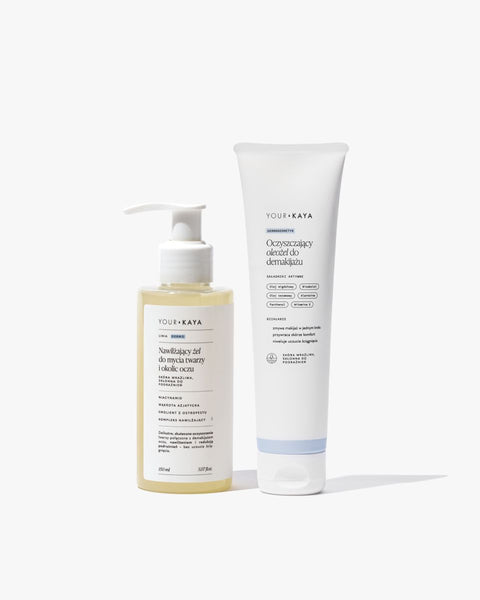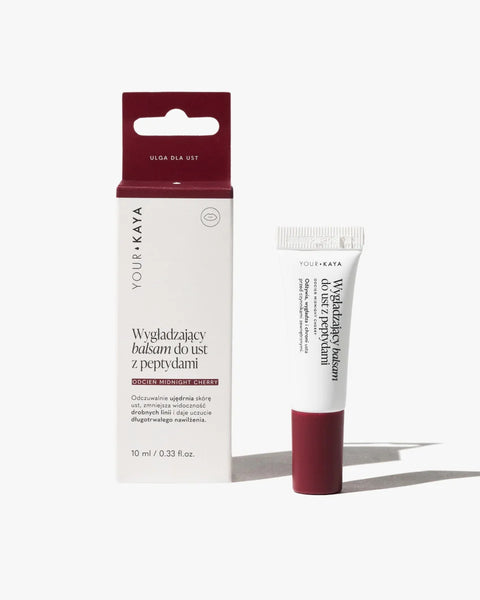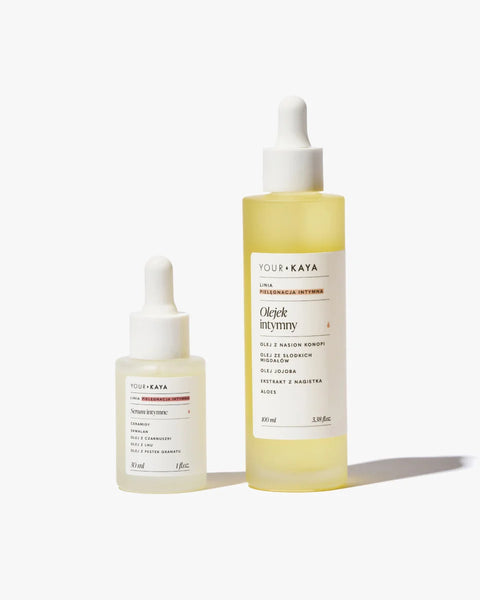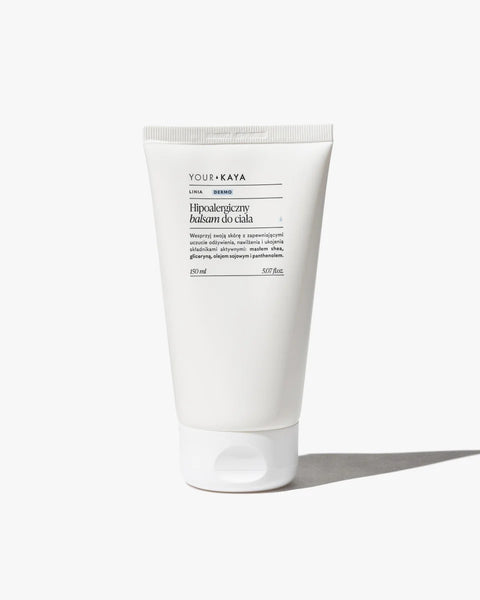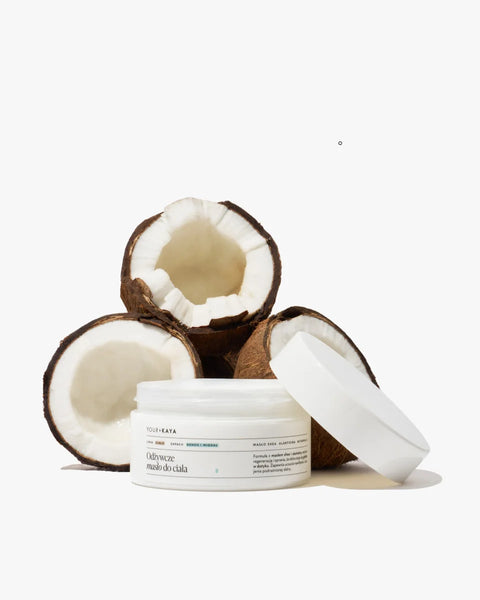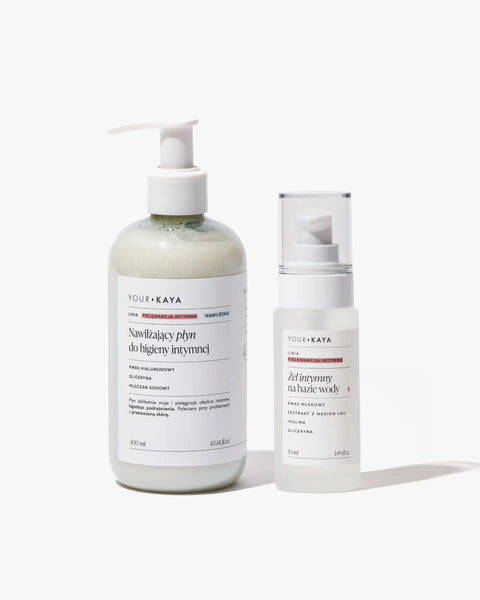Using intimate hygiene fluid – (un)necessary?
Doctors agree on this issue – the use of intimate hygiene fluids is not necessary, but... sometimes it is recommended!
The vagina is quite good at cleaning itself, and if we are not struggling with any infection, we can safely wash the perineum only with water.
Why do we use intimate hygiene fluids?
So if we don’t need to use intimate hygiene fluid, why do we even do it?
For a simple reason: many of us cannot imagine washing our pussies with water alone, considering the sweat that accumulates around the vulva during the day. Intimate hygiene gels provide a sense of greater comfort and "cleanliness". They are also a kind of continuation of the care routine in the shower or bath - we wash our face, hair, body with special preparations, so why not the pussy?
The British Royal College of Obstetricians and Gynaecologists also points out that washing the perineum with water alone can dry out the skin and contribute to itching of the intimate areas - which is why it recommends using a gentle emollient that will reduce the drying effect of water.
Can intimate hygiene fluid be harmful?
And can using soaps be harmful to our intimate areas? It depends.
Using strong, irritating liquids or soaps in the perineum area can be harmful. Strong detergents can cause allergies and painful irritations, dry out the perineum, and even contribute to the development of infections , damaging the very delicate skin of the intimate areas.
So if we decide to use an intimate hygiene fluid, let's make sure that its composition is as mild as possible and does not contain unnecessary fillers , such as dyes or fragrances. Although they create a pleasant foam and smell beautiful, this is the last thing our crotches need.
Intimate hygiene gel - use
According to the recommendations of specialists from Central Asia, using gentle, hypoallergenic gels with a pH between 4.2 and 5.6 may be helpful in maintaining the hygiene of intimate areas .
Hygiene fluids with an acidic pH and a lactic acid-based composition can help maintain skin homeostasis (i.e. balance) and support vaginal infections as a complementary therapy (but not as a cure!). They are used once a day, externally, always in the company of water.
How to effectively (and safely!) keep your perineum clean?
Washing intimate areas is a very important part of taking care of their hygiene and health. Specialists recommend washing the perineum once a day. Washing more often can wash away the good bacteria for our microbiome that protect the vagina from infections, and washing less often is not enough to take care of its hygiene. But! There is an exception to every rule - and in this case, the exception is hygiene during your period , which you can read more about here .
Vaginal douching – a trend that should die down
Vaginal irrigation, or rinsing (or rather flushing!) the inside of the vagina , is a total no-go for care . With the help of irrigation, we can successfully say goodbye to good bacteria (lactobacilli) in our vaginas, and as a result – welcome a bunch of intimate infections.
You can read more about intimate infections in our articles: vaginal mycosis , bacterial vaginosis , andgenital herpes .
I mention douching because it is still a fairly popular form of attempting to deal with unpleasant odors or venereal diseases . Popular, but completely ineffective. Douching is not an effective way to prevent any of the things mentioned. What is worse, in the context of most infections and irritations, it can do the opposite. The exceptions are (rarely encountered) situations in which a doctor specifically recommends douching as a complement to the treatment process - such a situation may occur in the case of some infections.
Also check out our article about unpleasant vaginal odor .
Should I use intimate hygiene fluid?
Our intimate areas do not need special products for daily washing. However, if you cannot imagine washing your perineum with water alone, make sure to choose the mildest intimate hygiene fluid. This is a much healthier choice than treating your intimate areas with irritating body soaps.
If you decide to use a liquid, remember to use it in small amounts, only externally. And if you have any doubts, contact your gynecologist - he or she will be the best judge of whether it is worth taking a bath with or without a liquid in your case.
Created at: 15/08/2022
Updated at: 15/08/2022



























